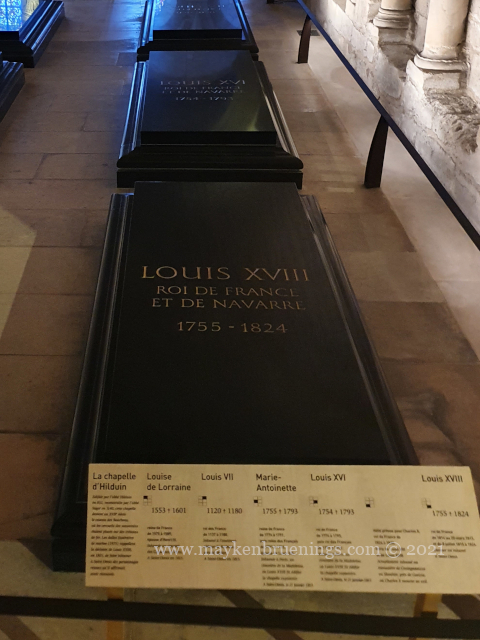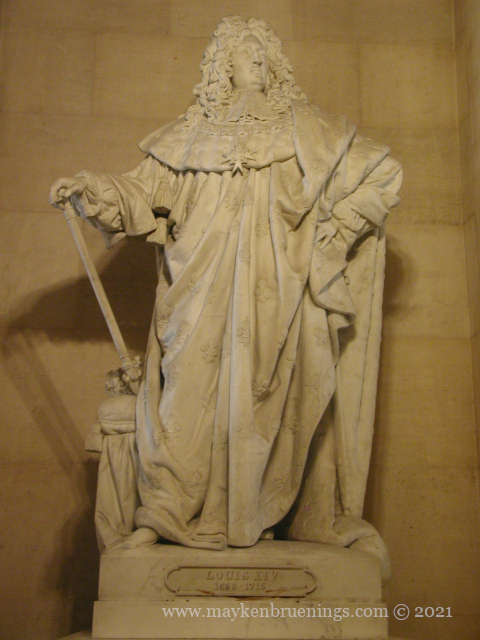
Many French kings were named Louis, and their combined reigns stretch over hundreds of years of French history.
Louis Ist, born in 778, was the third son of Charlemagne, and became his successor after the death of his two older brothers. His grandson was Louis II, whose son in turn was Louis III, but it was his brother Charles who became the father of Louis IV and great-grandfather of Louis V.
Are you lost yet? Me too.

Let’s leave the Carolingian dynasty for the Capetians. After Louis V who died in 987, it took a change of dynasty to get to Louis VI, born in 1084. His son was Louis VII, his great-grandson Louis VIII and with the following generation we finally get to someone interesting: Louis IX, better known as Saint-Louis. We’re in the 13th century now, and Louis is king for over forty years. His reign is seen as the golden age for the kingdom of France which reached economic and political summits during this era. He had a reputation of being very pious and a high moral integrity.
He was canonized in 1297, twenty-seven years after his death, and remains the only French king to receive that distinction from the Catholic church.
Following his death, it took three generations to get to Louis X, the last Louis of the Capetian dynasty. And even after entering the Valois dynasty, it was some time before Louis XI became king in 1423. (He was the son and successor of Charles VII who was crowned with the help of Joan of Arc, with whom you might be more familiar than any of these kings.)

Onward, to cousin Louis XII, who died without giving the kingdom a successor, so the crown went to yet another cousin, François d’Angoulême (the first king named François). Contrary to Louis XII, he had a number of children, yet none of them was named Louis. (His daughter Louise died aged 3 but she couldn’t have become queen anyway.)

Enter the Bourbon dynasty and the reigns of the most famous kings named Louis:
Louis XIII with his prime ministers Cardinal Richelieu and Mazarin, arch-enemies of the Three Musketeers

Louis XIV, the Sun King, who built the glorious palace of Versailles to escape the dangerous streets of Paris
Louis XV who lent his name to the architectural style Louis Quinze and reconciled France and Austria, sealing the alliance with the marriage between his grandson Louis and Marie-Antoinette.
Can you see it coming? That grandson is none other than Louis XVI who lost his head during the French Revolution.
Which makes his brother, Louis XVIII, who returned to the throne after the first fall of Napoléon Bonaparte in 1814, the last king of France by that name (and one of the last kings of France full stop).

You’ll wonder what happened to Louis XVII and what possessed the parents to name two of their sons Louis, especially as they were born only one year apart?
I can only answer the first question: Louis XVII, or Louis Charles, was the second son of Louis XVI and Marie-Antoinette. He was considered Dauphin after the death of his older brother but died aged ten during the French Revolution, 19 years before his uncle claimed back the throne.








